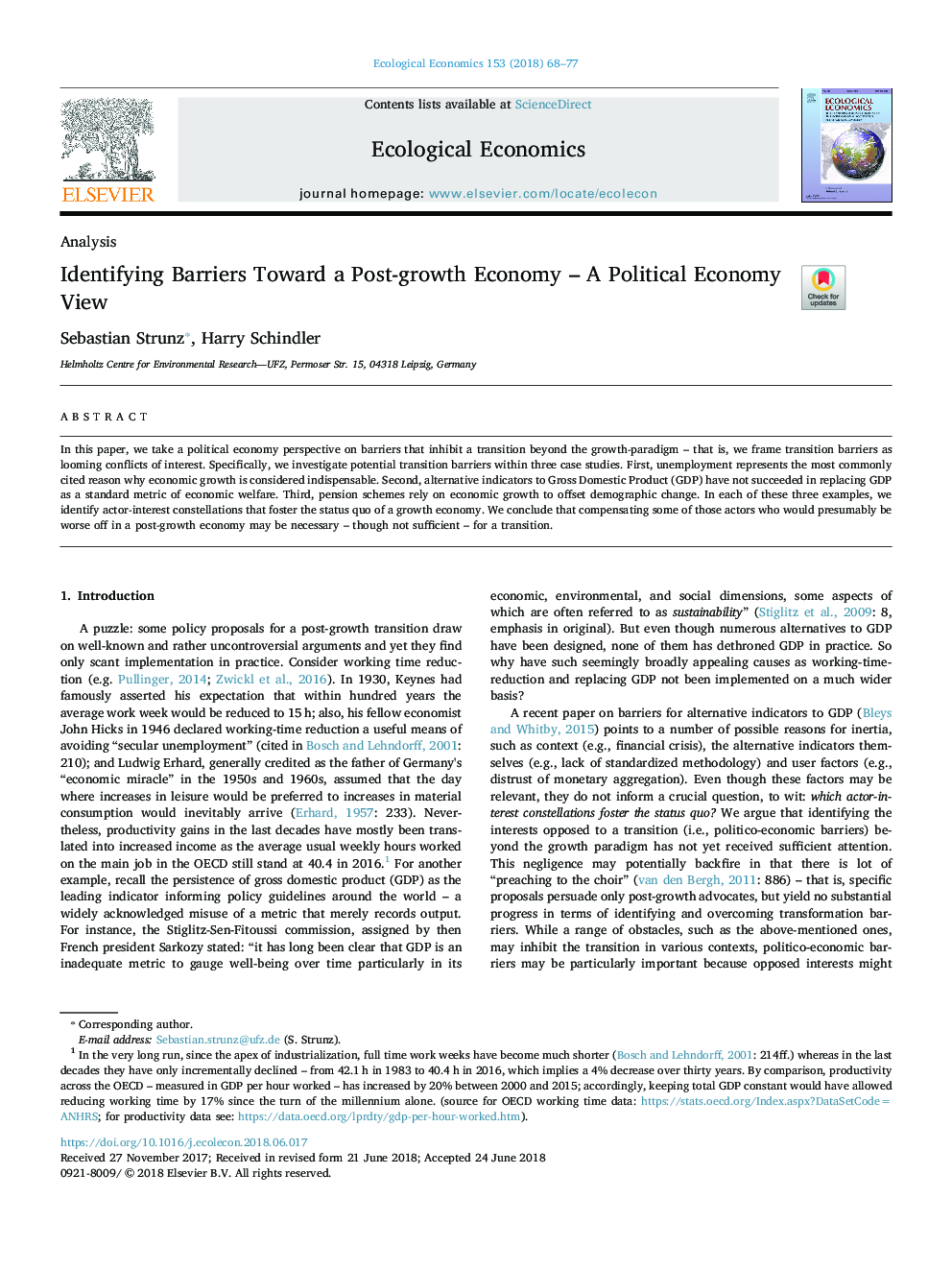| Article ID | Journal | Published Year | Pages | File Type |
|---|---|---|---|---|
| 7343712 | Ecological Economics | 2018 | 10 Pages |
Abstract
In this paper, we take a political economy perspective on barriers that inhibit a transition beyond the growth-paradigm - that is, we frame transition barriers as looming conflicts of interest. Specifically, we investigate potential transition barriers within three case studies. First, unemployment represents the most commonly cited reason why economic growth is considered indispensable. Second, alternative indicators to Gross Domestic Product (GDP) have not succeeded in replacing GDP as a standard metric of economic welfare. Third, pension schemes rely on economic growth to offset demographic change. In each of these three examples, we identify actor-interest constellations that foster the status quo of a growth economy. We conclude that compensating some of those actors who would presumably be worse off in a post-growth economy may be necessary - though not sufficient - for a transition.
Related Topics
Life Sciences
Agricultural and Biological Sciences
Ecology, Evolution, Behavior and Systematics
Authors
Sebastian Strunz, Harry Schindler,
